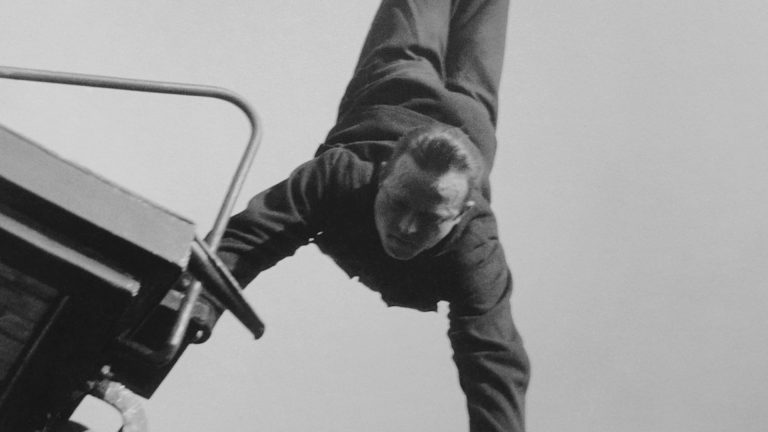The exhibition Miloš Dohnány in the City presents a selection of images by an important representative of modern Slovak photography. The exhibited images at Mai Manó House are selected from a thematic series of Dohnány’s photographs, focusing on the intertwining of urban life and modern Bratislava architecture, and on Bratislava in the 1930s and 1940s. Miloš Dohnány was a leading figure in contemporary photography, an enthusiast of new technologies, an educator, essayist, and the first Slovak critic and theorist of photography. He lived a short but productive life and left behind an outstanding oeuvre.
Born in 1904, he completed his primary and early secondary schooling in Austria, his father having been an engineer with the Austro-Hungarian Monarchy’s railways. In 1919, after the formation of Czechoslovakia, his family moved to Bratislava, where Dohnány graduated from the Technical College of Czechoslovak State Railways in Olomouc. He then worked for the State Railways in various positions from 1923 until the end of his life. From 1924 he sent his photographs to Slovak and Czech magazines.
In the early 1930s he became a member of the renowned Association of Amateur Photographers in Bratislava. Between 1931 and 1933, he founded and ran the advisory column for amateur photographers in the journal Vesna, where he also published programmatic reflections on modern photography, written under the influence of Moholy-Nagy’s texts on media theory. In the 1930s, he contributed articles and photojournalistic reports on various subjects to magazines (Nový svet, Fotografický obzor, Pestrý týden, Lidové noviny and others).
Between 1932 and 1933, he studied photography at the School of Arts and Crafts in Bratislava, under the direction of Jaromír Funke, a local pioneer of avant-garde photography at the time. As early as 1934, Dohnány himself was teaching courses for amateur photographers at the Amateur Photographers’ Association. From 1941 he worked as an external editor of the magazine Krásy Slovenska and continued to contribute to magazines at home and abroad. He died in a car accident in Bratislava in October 1944. As a result of the changing political situation, his photographs were only rediscovered in the 1960s.
The exhibition was organized in cooperation with the Slovak Institute in Budapest and the Central European House of Photography.











